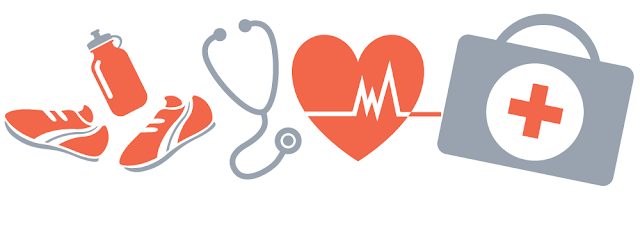burn up Allerx-D (Oral) locate
 Photo :Allerx-D (Oral)
Photo :Allerx-D (Oral) worried Allerx-D (Oral) Generic Name: cough and cold combinations (Oral route) Commonly used brand name(s) In the U.S. Ala-Hist AC Ala-Hist DHC Alavert-D 12-Hour Aldex D Alka-Seltzer Plus Cold and Sinus AllanVan-S Allegra-D Aller-Chlor Allerx-D Allfen CD Allres PD Amibid LA Benadryl BPM Pseudo Bromcomp HC Bromfed-PD BroveX CB By-Ache Canges-HC Ceron Ceron-DM Chlor-Trimeton Nasal Decongestant Clarinex-D Codimal DH Cotab A Cotabflu Cypex-LA Deconamine SR Delsym Dexphen w/C Donatussin DC Donnatussin D-Tann HC EndaCof-DC FluTuss XP Genapap Sinus G Phen DM HC Tussive Histex PD Humibid DM Hycodan Hycofenix Hydone HyTan Kie Levall 12 Lusonal Maxiflu CD Maxiphen CD M-End Max D Mucinex D Nasop Notuss-Forte Notuss-NX Notuss-NXD Novahistine DH Pancof HC Pediatex 12 Pediatex 12D Pediatex 12DM Pediatex-D Phenergan w/Codeine Phenflu CD Phenylephrine CM Phenylhistine Poly-Tussin AC Poly-Tussin DHC Pro-Clear AC Promethazine VC With Codeine Pro-Red AC RelaTuss HC Robitussin Robitussin DM Ryneze Semprex-D SSKI Stahist Sudafed SymTan SymTan A Tanafed DMX Tannate Pediatric Tessalon Perles Tricold Pediatric Drops Tripohist D Tussi-12 S TussiCaps Tuzistra XR Tylenol Uni-Tann D Vituz Xpect-PE Y-Cof DM Z-COF DM Zhist Zodryl DAC 25 Zotex-D Zymine Zymine HC ZyrTEC-D In Canada Actifed A Actifed Plus Actifed Plus Extra Strength Actifed Plus Head Cold And Sinus Extra Strength Actifed Sinus Regular Adult Nighttime Cold/Flu Relief - Cherry Flavor Adult Nighttime Cold/Flu Relief - Original Flavor Allergy Sinus Medication Extra Strength Atoma Night Adult Cold/Flu Relief Balminil Balminil Dm Children Balminil Dm Sugar-Free Available Dosage Forms: Suspension Tablet, Disintegrating Tablet, Chewable Solution Tablet Syrup Suspension, Extended Release Tablet, Extended Release Elixir Liquid Capsule, Extended Release Capsule Capsule, Liquid Filled Capsule, Extended Release, 12 HR Packet Tablet, Extended Release, 12 HR Film Tablet, Effervescent Powder for Suspension Powder for Solution Kit Tablet, Extended Release, 24 HR Capsule, Extended Release, 24 HR Tablet, Enteric Coated Uses For Allerx-D Cough/cold combinations are used mainly to relieve the cough due to colds, influenza, or hay fever. They are not to be used for the chronic cough that occurs with smoking, asthma, or emphysema or when there is an unusually large amount of mucus or phlegm (pronounced flem) with the cough. Cough/cold combination products contain more than one ingredient. For example, some products may contain an antihistamine, a decongestant, and an analgesic, in addition to a medicine for coughing. If you are treating yourself, it is important to select a product that is best for your symptoms. Also, in general, it is best to buy a product that includes only those medicines you really need. If you have questions about which product to buy, check with your pharmacist. Since different products contain ingredients that will have different precautions and side effects, it is important that you know the ingredients of the medicine you are taking. The different kinds of ingredients that may be found in cough/cold combinations include: Antihistamines Antihistamines are used to relieve or prevent the symptoms of hay fever and other types of allergy. They also help relieve some symptoms of the common cold, such as sneezing and runny nose. They work by preventing the effects of a substance called histamine, which is produced by the body. Some examples of antihistamines contained in these combinations are: Bromodiphenhydramine Brompheniramine Carbinoxamine Chlorpheniramine Dexchlorpheniramine Diphenhydramine Doxylamine Phenindamine Pheniramine Phenyltoloxamine Pyrilamine Promethazine Triprolidine Decongestants Decongestants produce a narrowing of blood vessels. This leads to clearing of nasal congestion. However, this effect may also increase blood pressure in patients who have high blood pressure. These include: Ephedrine Phenylephrine Pseudoephedrine Antitussives Antitussives help relieve coughing and are some contain a narcotic. These antitussives act directly on the cough center in the brain. Narcotics may become habit-forming, causing mental or physical dependence, if used for a long time. Physical dependence may lead to withdrawal side effects when you stop taking the medicine. Narcotic antitussives Codeine Dihydrocodeine Hydrocodone Hydromorphone Non-narcotic antitussives Carbetapentane Caramiphen Dextromethorphan Expectorants Expectorants work by loosening the mucus or phlegm in the lungs. The main expectorant used in cough and cold medicines is guaifenesin . Other ingredients added as expectorants (for example, ammonium chloride, calcium iodide, iodinated glycerol, ipecac, potassium guaiacolsulfonate, potassium iodide, and sodium citrate) have not been proven to be effective. In general, the best thing you can do to loosen mucus or phlegm is to drink plenty of water. Analgesics Analgesics are used in these combination medicines to help relieve the aches and pain that may occur with the common cold. These include: Acetaminophen Aspirin Other salicylates such as salicylamide and sodium salicylate The use of too much acetaminophen and salicylates at the same time may cause kidney damage or cancer of the kidney or urinary bladder. This may occur if large amounts of both medicines are taken together for a long time. However, taking the recommended amounts of combination medicines that contain both acetaminophen and a salicylate for short periods of time has not been shown to cause these unwanted effects. Anticholinergics Anticholinergics, such as homatropine may help produce a drying effect in the nose and chest. These cough and cold combinations are available both over-the-counter (OTC) and with your doctor's prescription. Do not give any over-the-counter (OTC) cough and cold medicine to a baby or child under 4 years of age. Using these medicines in very young children might cause serious or possibly life-threatening side effects . Before Using Allerx-D Allergies Tell your doctor if you have ever had any unusual or allergic reaction to medicines in this group or any other medicines. Also tell your health care professional if you have any other types of allergies, such as to foods dyes, preservatives, or animals. For non-prescription products, read the label or package ingredients carefully. Pediatric Very young children are usually more sensitive to the effects of this medicine. Before giving any of these combination medicines to a child, check the package label very carefully. Some of these medicines are too strong for use in children . If you are not certain whether a specific product can be given to a child, or if you have any questions about the amount to give, check with your health care professional, especially if it contains: Antihistamines Nightmares, unusual excitement, nervousness, restlessness, or irritability may be more likely to occur in children taking antihistamines. Decongestants (e.g., ephedrine, phenylephrine, pseudoephedrine Increases in blood pressure may be more likely to occur in children taking decongestants. Iodides (e.g., calcium iodide and iodinated glycerol) These medicines pass into the breast milk and may cause unwanted effects, such as underactive thyroid, in the baby. Narcotic antitussives (e.g., codeine, dihydrocodeine, hydrocodone, and hydromorphone) Breathing problems may be especially likely to occur in children younger than 2 years of age taking narcotic antitussives. Also, unusual excitement or restlessness may be more likely to occur in children receiving these medicines. Salicylates (e.g., aspirin) Do not give medicines containing aspirin or other salicylates to a child or teenager with a fever or other symptoms of a virus infection, especially flu or chickenpox, without first discussing its use with your child's doctor. This is very important because salicylates may cause a serious illness called Reye's syndrome in children with fever caused by a virus infection, especially flu or chickenpox. Also, children may be more sensitive to the aspirin or other salicylates contained in some of these medicines, especially if they have a fever or have lost large amounts of body fluid because of vomiting, diarrhea, or sweating. Do not give any over-the-counter (OTC) cough and cold medicine to a baby or child under 4 years of age. Using these medicines in very young children might cause serious or possibly life-threatening side effects . Geriatric The elderly are usually more sensitive to the effects of this medicine, especially if it contains: Antihistamines Confusion, difficult or painful urination, dizziness, drowsiness, feeling faint, or dryness of mouth, nose, or throat may be more likely to occur in elderly patients. Also, nightmares or unusual excitement, nervousness, restlessness, or irritability may be more likely to occur in the elderly taking antihistamines. Decongestants (e.g., ephedrine, phenylephrine, pseudoephedrine Confusion, hallucinations, drowsiness, or convulsions (seizures) may be more likely to occur in the elderly, who are usually more sensitive to the effects of this medicine. Also, increases in blood pressure may be more likely to occur in elderly persons taking decongestants. Pregnancy The occasional use of a cough/cold combination is not likely to cause problems in the fetus or in the newborn baby. However, when these medicines are used at higher doses and/or for a long time, the chance that problems might occur may increase. For the individual ingredients of these combinations, the following information should be considered before you decide to use a particular cough/cold combination: Acetaminophen Studies on birth defects have not been done in humans. However, acetaminophen has not been shown to cause birth defects or other problems in humans. Alcohol Some of these combination medicines contain a large amount of alcohol. Too much use of alcohol during pregnancy may cause birth defects. Antihistamines Antihistamines have not been shown to cause problems in humans. Caffeine Studies in humans have not shown that caffeine causes birth defects. However, studies in animals have shown that caffeine causes birth defects when given in very large doses (amounts equal to the amount of caffeine contained in 12 to 24 cups of coffee a day). Codeine Although studies on birth defects with codeine have not been done in humans, it has not been reported to cause birth defects in humans. Codeine has not been shown to cause birth defects in animal studies, but it caused other unwanted effects. Also, regular use of narcotics during pregnancy may cause the baby to become dependent on the medicine. This may lead to withdrawal side effects after birth. In addition, narcotics may cause breathing problems in the newborn baby if taken by the mother just before delivery. Hydrocodone Although studies on birth defects with hydrocodone have not been done in humans, it has not been reported to cause birth defects in humans. However, hydrocodone has been shown to cause birth defects in animals when given in very large doses. Also, regular use of narcotics during pregnancy may cause the baby to become dependent on the medicine. This may lead to withdrawal side effects after birth. In addition, narcotics may cause breathing problems in the newborn baby if taken by the mother just before delivery. Iodides (e.g., calcium iodide and iodinated glycerol) Not recommended during pregnancy. Iodides have caused enlargement of the thyroid gland in the fetus and resulted in breathing problems in newborn babies whose mothers took iodides in large doses for a long period of time. Phenylephrine Studies on birth defects with phenylephrine have not been done in either humans or animals. Pseudoephedrine Studies on birth defects with pseudoephedrine have not been done in humans. In animal studies pseudoephedrine did not cause birth defects but did cause a decrease in average weight, length, and rate of bone formation in the animal fetus when given in high doses. Salicylates (e.g., aspirin) Studies on birth defects in humans have been done with aspirin, but not with salicylamide or sodium salicylate. Salicylates have not been shown to cause birth defects in humans. However, salicylates have been shown to cause birth defects in animals. Some reports have suggested that too much use of aspirin late in pregnancy may cause a decrease in the newborn's weight and possible death of the fetus or newborn infant. However, the mothers in these reports had been taking much larger amounts of aspirin than are usually recommended. Studies of mothers taking aspirin in the doses that are usually recommended did not show these unwanted effects. However, there is a chance that regular use of salicylates late in pregnancy may cause unwanted effects on the heart or blood flow in the fetus or newborn baby. Use of salicylates, especially aspirin, during the last 2 weeks of pregnancy may cause bleeding problems in the fetus before or during delivery, or in the newborn baby. Also, too much use of salicylates during the last 3 months of pregnancy may increase the length of pregnancy, prolong labor, cause other problems during delivery, or cause severe bleeding in the mother before, during, or after delivery. Do not take aspirin during the last 3 months of pregnancy unless it has been ordered by your doctor . Breast Feeding If you are breastfeeding, the chance that problems might occur depends on the ingredients of the combination. For the individual ingredients of these combinations, the following apply: Acetaminophen Acetaminophen passes into the breast milk. However, it has not been reported to cause problems in nursing babies. Alcohol Alcohol passes into the breast milk. However, the amount of alcohol in recommended doses of this medicine does not usually cause problems in nursing babies. Antihistamines Small amounts of antihistamines pass into the breast milk. Antihistamine-containing medicine is not recommended for use while breastfeeding since most antihistamines are especially likely to cause side effects, such as unusual excitement or irritability, in the baby. Also, since antihistamines tend to decrease the secretions of the body, the flow of breast milk may be reduced in some patients. Caffeine Small amounts of caffeine pass into the breast milk and may build up in the nursing baby. However, the amount of caffeine in recommended doses of this medicine does not usually cause problems in nursing babies. Codeine and other narcotic cough medicines (e.g., dihydrocodeine, hydrocodone, and hydromorphone) Codeine is changed to morphine in the body. Some people change codeine to morphine more quickly than others. These individuals are called "ultra-rapid metabolizers of codeine". If a nursing mother is an ultra-rapid metabolizer of codeine, it could lead to a morphine overdose in the nursing baby and cause very serious side effects. A nursing mother should talk to her doctor if she has any questions about taking codeine or about how this medicine may affect her baby . Decongestants (e.g., ephedrine, phenylephrine, pseudoephedrine Phenylephrine has not been reported to cause problems in nursing babies. Ephedrine and pseudoephedrine pass into the breast milk and may cause unwanted effects in nursing babies (especially newborn and premature babies). Iodides (e.g., calcium iodide and iodinated glycerol) These medicines pass into the breast milk and may cause unwanted effects, such as underactive thyroid, in the baby. Salicylates (e.g., aspirin) Salicylates pass into the breast milk. Although salicylates have not been reported to cause problems in nursing babies, it is possible that problems may occur if large amounts are taken regularly. Interactions with Medicines Although certain medicines should not be used together at all, in other cases two different medicines may be used together even if an interaction might occur. In these cases, your doctor may want to change the dose, or other precautions may be necessary. When you are taking any of these medicines, it is especially important that your healthcare professional know if you are taking any of the medicines listed below. The following interactions have been selected on the basis of their potential significance and are not necessarily all-inclusive. Using medicines in this class with any of the following medicines is not recommended. Your doctor may decide not to treat you with a medication in this class or change some of the other medicines you take. Alfuzosin Amifampridine Amiodarone Amisulpride Amitriptyline Amprenavir Anagrelide Apomorphine Aripiprazole Aripiprazole Lauroxil Arsenic Trioxide Artemether Asenapine Astemizole Atazanavir Azithromycin Bedaquiline Bepridil Boceprevir Buserelin Chloroquine Chlorpromazine Ciprofloxacin Cisapride Citalopram Clarithromycin Clomipramine Clorgyline Clozapine Cobicistat Crizotinib Cyclobenzaprine Cyclopropane Dabrafenib Darunavir Dasabuvir Defibrotide Degarelix Delamanid Delavirdine Desipramine Deslorelin Deutetrabenazine Dichlorphenamide Dihydroergotamine Disopyramide Dofetilide Dolasetron Domperidone Donepezil Doxepin Dronedarone Droperidol Ebastine Efavirenz Elvitegravir Eribulin Erythromycin Escitalopram Famotidine Felbamate Fingolimod Flecainide Fluconazole Fluoxetine Fluvoxamine Formoterol Foscarnet Fosphenytoin Furazolidone Galantamine Gatifloxacin Gemifloxacin Gonadorelin Goserelin Granisetron Halofantrine Haloperidol Halothane Histrelin Hydroquinidine Hydroxychloroquine Hydroxyzine Ibutilide Iloperidone Imipramine Indinavir Influenza Virus Vaccine, Live Iproniazid Isocarboxazid Itraconazole Ivabradine Ketoconazole Ketorolac Lapatinib Leuprolide Levofloxacin Levomethadyl Linezolid Lumefantrine Mefloquine Mesoridazine Methadone Methotrimeprazine Methylene Blue Metronidazole Mifepristone Mizolastine Moclobemide Moricizine Moxifloxacin Nafarelin Nalmefene Naltrexone Nefazodone Nelfinavir Nialamide Nilotinib Norfloxacin Octreotide Ofloxacin Olanzapine Ombitasvir Ondansetron Paliperidone Panobinostat Papaverine Pargyline Paritaprevir Paroxetine Pasireotide Pazopanib Pentamidine Perphenazine Phenelzine Pimavanserin Pimozide Pipamperone Piperaquine Pitolisant Posaconazole Potassium Probucol Procainamide Procarbazine Prochlorperazine Promethazine Propafenone Protriptyline Quetiapine Quinidine Quinine Ranolazine Rasagiline Ribociclib Rilpivirine Riociguat Risperidone Ritonavir Safinamide Saquinavir Selegiline Sertindole Sevoflurane Sibutramine Sodium Oxybate Sodium Phosphate Sodium Phosphate, Dibasic Sodium Phosphate, Monobasic Solifenacin Sorafenib Sotalol Sparfloxacin Sulpiride Sultopride Sunitinib Tacrolimus Tamoxifen Telaprevir Telavancin Telithromycin Tetrabenazine Thioridazine Tipranavir Tizanidine Toloxatone Tolterodine Toremifene Tranylcypromine Trazodone Trimipramine Triptorelin Vandetanib Vardenafil Vemurafenib Venlafaxine Vilanterol Vinflunine Voriconazole Vorinostat Ziprasidone Zolmitriptan Zotepine Zuclopenthixol Using medicines in this class with any of the following medicines is usually not recommended, but may be required in some cases. If both medicines are prescribed together, your doctor may change the dose or how often you use one or both of the medicines. Abciximab Acarbose Aceclofenac Acemetacin Acenocoumarol Acepromazine Acetyldigoxin Adenosine Alefacept Alfentanil Alipogene Tiparvovec Almotriptan Alprazolam Alteplase, Recombinant Amiloride Amineptine Amiodarone Amisulpride Amitriptyline Amitriptylinoxide Amobarbital Amoxapine Amphetamine Amtolmetin Guacil Amygdalin Anagrelide Ancrod Anileridine Anisindione Antithrombin III Human Apixaban Aprepitant Aprobarbital Ardeparin Argatroban Aripiprazole Arsenic Trioxide Asenapine Aspirin Atazanavir Axitinib Baclofen Balsalazide Bemiparin Bendroflumethiazide Benperidol Benzphetamine Benzthiazide Betamethasone Betrixaban Bismuth Subsalicylate Bivalirudin Blinatumomab Boceprevir Bosutinib Bromazepam Bromfenac Bromocriptine Bromopride Brompheniramine Bucindolol Budesonide Bufexamac Bumetanide Buprenorphine Bupropion Buspirone Butabarbital Butalbital Butorphanol Calcifediol Cangrelor Carbamazepine Carbinoxamine Carisoprodol Carmustine Carphenazine Carteolol Carvedilol Celecoxib Ceritinib Certoparin Chloral Hydrate Chlordiazepoxide Chlorothiazide Chlorpheniramine Chlorpromazine Chlorpropamide Chlorthalidone Chlorzoxazone Choline Magnesium Trisalicylate Choline Salicylate Cilostazol Cimetidine Ciprofloxacin Citalopram Clarithromycin Clobazam Clomipramine Clonazepam Clonixin Clopamide Clopidogrel Clorazepate Clorgyline Clozapine Cobimetinib Cocaine Codeine Conivaptan Cortisone Cyclobenzaprine Cyclopenthiazide Cyclosporine Dabigatran Etexilate Daclatasvir Dalteparin Danaparoid Dantrolene Darunavir Dasabuvir Deferasirox Deferoxamine Defibrotide Deflazacort Delavirdine Dermatan Sulfate Desipramine Desirudin Deslanoside Desmopressin Desogestrel Desvenlafaxine Dexamethasone Dexibuprofen Dexketoprofen Dexmedetomidine Dextroamphetamine Dextromethorphan Dezocine Diacetylmorphine Diazepam Diazoxide Dibenzepin Dichloralphenazone Diclofenac Dicumarol Dienogest Difenoxin Diflunisal Digitalis Digitoxin Digoxin Dihydroartemisinin Dihydrocodeine Dilevalol Diltiazem Diphenhydramine Diphenoxylate Dipyridamole Dipyrone Dolasetron Domperidone Donepezil Dothiepin Doxepin Doxorubicin Doxorubicin Hydrochloride Liposome Doxylamine Dronedarone Droperidol Drospirenone Droxicam Duloxetine Edoxaban Elbasvir Eletriptan Eliglustat Enflurane Enoxacin Enoxaparin Entacapone Eplerenone Epoprostenol Eptifibatide Ergonovine Erlotinib Erythromycin Escitalopram Eslicarbazepine Acetate Estazolam Estradiol Cypionate Estradiol Valerate Eszopiclone Ethacrynic Acid Ethchlorvynol Ethinyl Estradiol Ethopropazine Ethylmorphine Ethynodiol Diacetate Etintidine Etodolac Etofenamate Etonogestrel Etoricoxib Etravirine Felbinac Fenoprofen Fentanyl Fepradinol Feprazone Feverfew Flibanserin Floctafenine Fluconazole Flufenamic Acid Flunitrazepam Fluocortolone Fluoxetine Fluphenazine Flurazepam Flurbiprofen Fluspirilene Fluvoxamine Fondaparinux Fosaprepitant Fosphenytoin Fospropofol Frovatriptan Furazolidone Furosemide Ginkgo Glimepiride Glipizide Glyburide Golimumab Gossypol Granisetron Grazoprevir Guanethidine Guselkumab Halazepam Haloperidol Halothane Heparin Hexobarbital Hyaluronidase Hydrochlorothiazide Hydrocodone Hydrocortisone Hydroflumethiazide Hydromorphone Hydroxytryptophan Hydroxyzine Ibuprofen Idelalisib Idrocilamide Ifosfamide Iloprost Imatinib Imipenem Imipramine Indapamide Indinavir Indomethacin Iobenguane I 123 Iproniazid Isocarboxazid Isoflurane Isoniazid Itraconazole Ketamine Ketazolam Ketobemidone Ketoconazole Ketoprofen Lanreotide Ledipasvir Lepirudin Levalbuterol Levobunolol Levofloxacin Levomilnacipran Levonorgestrel Levorphanol Licorice Linezolid Lisdexamfetamine Lithium Lofepramine Lopinavir Lorazepam Lorcaserin Lormetazepam Lornoxicam Loxapine Loxoprofen Lumiracoxib Magnesium Salicylate Meadowsweet Meclizine Meclofenamate Medazepam Medroxyprogesterone Acetate Mefenamic Acid Melitracen Meloxicam Melperone Memantine Meperidine Mephenesin Mephobarbital Meprobamate Meptazinol Mesalamine Mesoridazine Mestranol Metaxalone Metformin Methadone Methamphetamine Methdilazine Methocarbamol Methohexital Methotrexate Methotrimeprazine Methoxyflurane Methyclothiazide Methyldopa Methylene Blue Methylergonovine Methylprednisolone Metildigoxin Metipranolol Metolazone Mexiletine Midazolam Midodrine Mifepristone Milnacipran Mirtazapine Moclobemide Molindone Moricizine Morniflumate Morphine Morphine Sulfate Liposome Nabumetone Nadolol Nadroparin Nalbuphine Naproxen Naratriptan Nateglinide Nefazodone Nelfinavir Nepafenac Netupitant Nialamide Nicomorphine Nicorandil Nifedipine Niflumic Acid Nimesulide Nimesulide Beta Cyclodextrin Nimodipine Nitrazepam Nitrous Oxide Norelgestromin Norethindrone Norgestimate Norgestrel Nortriptyline Olanzapine Olaparib Olsalazine Ombitasvir Ondansetron Opipramol Opium Opium Alkaloids Orlistat Orphenadrine Oxaprozin Oxazepam Oxprenolol Oxycodone Oxymorphone Oxyphenbutazone Oxytocin Palonosetron Panobinostat Papaveretum Paramethasone Parecoxib Paregoric Pargyline Paritaprevir Parnaparin Paroxetine Pefloxacin Peginterferon Alfa-2a Peginterferon Alfa-2b Pemetrexed Penbutolol Pentazocine Pentobarbital Pentosan Polysulfate Sodium Pentoxifylline Perampanel Perazine Periciazine Perphenazine Phenelzine Phenindione Phenobarbital Phenprocoumon Phenylbutazone Phenyl Salicylate Phenytoin Piketoprofen Pimozide Pindolol Piperacetazine Piperaquine Pipotiazine Piracetam Piritramide Piroxicam Pixantrone Pneumococcal 13-Valent Vaccine, Diphtheria Conjugate Polythiazide Posaconazole Pralatrexate Pranoprofen Prasugrel Prazepam Prednisolone Prednisone Primidone Procarbazine Prochlorperazine Proglumetacin Promazine Promethazine Propofol Propranolol Propyphenazone Proquazone Protein C Protriptyline Quazepam Quetiapine Ramelteon Rasagiline Reboxetine Regadenoson Remifentanil Remoxipride Repaglinide Reteplase, Recombinant Reviparin Ritonavir Rivaroxaban Rizatriptan Rofecoxib Salicylamide Salicylic Acid Salsalate Saquinavir Secobarbital Secukinumab Selegiline Sertindole Sertraline Sibutramine Simeprevir Sirolimus Sodium Oxybate Sodium Salicylate Sonidegib Sotalol Spironolactone St John's Wort Sufentanil Sulfasalazine Sulindac Sulpiride Sumatriptan Sunitinib Suvorexant Tacrolimus Tapentadol Telaprevir Telithromycin Temazepam Teniposide Tenofovir Alafenamide Tenoxicam Tertatolol Thiabendazole Thiethylperazine Thiopental Thiopropazate Thioridazine Tianeptine Tiaprofenic Acid Ticagrelor Ticlopidine Tilidine Timolol Tinzaparin Tiotropium Tirofiban Tizanidine Tolazamide Tolbutamide Tolfenamic Acid Tolmetin Tolonium Chloride Tolvaptan Topiramate Torsemide Tramadol Tranylcypromine Trazodone Treprostinil Triamterene Triazolam Trichlormethiazide Trifluoperazine Trifluperidol Triflupromazine Trimeprazine Trimipramine Trolamine Salicylate Troleandomycin Tryptophan Ulipristal Valdecoxib Varicella Virus Vaccine Velpatasvir Vemurafenib Venetoclax Venlafaxine Verapamil Vilazodone Vorapaxar Voriconazole Vortioxetine Warfarin Xipamide Zaleplon Zileuton Ziprasidone Zolmitriptan Zolpidem Zopiclone Zotepine Interactions with Food/Tobacco/Alcohol Certain medicines should not be used at or around the time of eating food or eating certain types of food since interactions may occur. Using alcohol or tobacco with certain medicines may also cause interactions to occur. Discuss with your healthcare professional the use of your medicine with food, alcohol, or tobacco. Using medicines in this class with any of the following is usually not recommended, but may be unavoidable in some cases. If used together, your doctor may change the dose or how often you use your medicine, or give you special instructions about the use of food, alcohol, or tobacco. Ethanol Grapefruit Juice Tobacco Other Medical Problems The presence of other medical problems may affect the use of medicines in this class. Make sure you tell your doctor if you have any other medical problems, especially: Alcohol abuse (or history of) Acetaminophen-containing medicines increase the chance of liver damage; also, some of the liquid medicines contain a large amount of alcohol. Anemia or Gout or Hemophilia or other bleeding problems or Stomach ulcer or other stomach problems These conditions may become worse if you are taking a combination medicine containing aspirin or another salicylate. Brain disease or injury or Colitis or Convulsions (seizures) (history of) or Diarrhea or Gallbladder disease or gallstones These conditions may become worse if you are taking a combination medicine containing codeine, dihydrocodeine, hydrocodone, or hydromorphone Cystic fibrosis (in children) Side effects of iodinated glycerol may be more likely in children with cystic fibrosis. Diabetes mellitus (sugar diabetes) Decongestants may put diabetic patients at greater risk of having heart or blood vessel disease. Emphysema, asthma, or chronic lung disease (especially in children) Salicylate-containing medicine may cause an allergic reaction in which breathing becomes difficult. Enlarged prostate or Urinary tract blockage or difficult urination Some of the effects of anticholinergics (e.g., homatropine) or antihistamines may make urinary problems worse. Glaucoma A slight increase in inner eye pressure may occur with the use of anticholinergics (e.g., homatropine) or antihistamines, which may make the condition worse. Heart or blood vessel disease or High blood pressure Decongestant-containing medicine may increase the blood pressure and speed up the heart rate; also, caffeine-containing medicine, if taken in large amounts, may speed up the heart rate. Kidney disease This condition may increase the chance of side effects of this medicine because the medicine may build up in the body. Liver disease Liver disease increases the chance of side effects because the medicine may build up in the body; also, if liver disease is severe, there is a greater chance that aspirin-containing medicine may cause bleeding. Thyroid disease If an overactive thyroid has caused a fast heart rate, the decongestant in this medicine may cause the heart rate to speed up further; also, if the medicine contains narcotic antitussives (e.g., codeine), iodides (e.g., iodinated glycerol), or salicylates, the thyroid problem may become worse. Proper Use of cough and cold combinations This section provides information on the proper use of a number of products that contain cough and cold combinations. It may not be specific to Allerx-D. Please read with care. To help loosen mucus or phlegm in the lungs, drink a glass of water after each dose of this medicine , unless otherwise directed by your doctor. Take this medicine only as directed . Do not take more of it and do not take it more often than recommended on the label, unless otherwise directed by your doctor. To do so may increase the chance of side effects. Do not give any over-the-counter (OTC) cough and cold medicine to a baby or child under 4 years of age. Using these medicines in very young children might cause serious or possibly life-threatening side effects . For patients taking the extended-release capsule or tablet form of this medicine : Swallow the capsule or tablet whole. Do not crush, break, or chew before swallowing. If the capsule is too large to swallow, you may mix the contents of the capsule with applesauce, jelly, honey, or syrup and swallow without chewing. For patients taking the extended-release oral solution or oral suspension form of this medicine : Do not dilute with fluids or mix with other drugs. For patients taking a combination medicine containing an antihistamine and/or aspirin or other salicylate : Take with food or a glass of water or milk to lessen stomach irritation, if necessary. If a combination medicine containing aspirin has a strong vinegar-like odor, do not use it . This odor means the medicine is breaking down. If you have any questions about this, check with your pharmacist. Missed Dose If you miss a dose of this medicine, take it as soon as possible. However, if it is almost time for your next dose, skip the missed dose and go back to your regular dosing schedule. Do not double doses. Storage Keep out of the reach of children. Store the medicine in a closed container at room temperature, away from heat, moisture, and direct light. Keep from freezing. Do not keep outdated medicine or medicine no longer needed. Keep the liquid form of this medicine from freezing. Do not refrigerate the syrup. Precautions While Using Allerx-D If your cough has not improved after 7 days or if you have a high fever, skin rash, continuing headache, or sore throat with the cough, check with your doctor. These signs may mean that you have other medical problems. For patients taking a codeine-containing medicine or any other narcotic analgesics (e.g., dihydrocodeine, hydrocodone, oxycodone, and pentazocine) : Contact your doctor immediately if you experience extreme sleepiness, confusion, or shallow breathing. These symptoms may indicate that you are an "ultra-rapid metabolizer of codeine". Ultra-rapid metabolizers change codeine to morphine more quickly and completely than other people. As a result, there is too much morphine in the body and more side effects of morphine than usual For nursing mothers taking a codeine-containing medicine or any other narcotic cough medicine (dihydrocodeine, hydrocodone, or hydromorphone) : Call your doctor if you become extremely tired and have difficulty caring for your baby. Your baby should generally nurse every two to three hours and should not sleep more than four hours at a time. Check with your doctor or hospital emergency room immedi seeking
express regret Allerx-D (Oral) appear
















